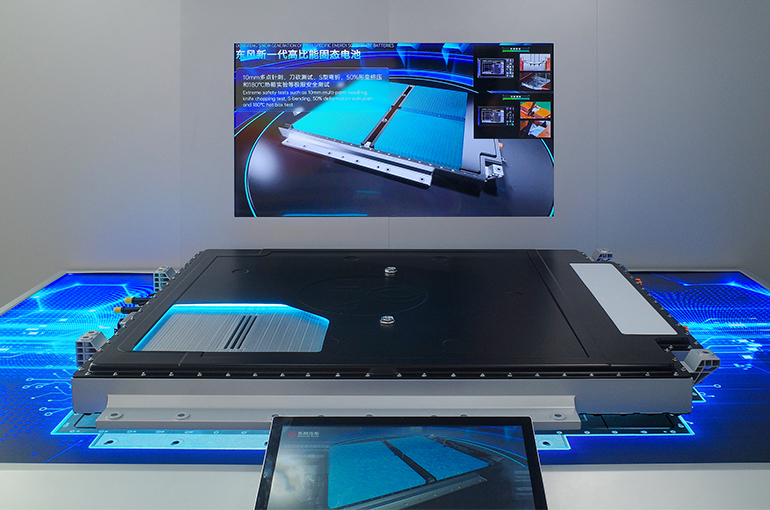 Solid-State Batteries Still Have a Long Way to Go Despite Major Progress, Chinese Experts Say
Solid-State Batteries Still Have a Long Way to Go Despite Major Progress, Chinese Experts Say(Yicai) Sept. 3 -- There remain many challenges in the development of all-solid-state batteries, despite their growing popularity, and mass production is still a long way off, Chinese industry experts said at a recent forum.
Compared with commonly used liquid-state batteries, such as lithium-ion batteries, solid-state batteries have a longer driving range, faster charging speed and higher safety performance. This allows them to be used in more application scenarios, such as aviation, robots and energy storage, Sun Xueliang, a foreign academician of the Chinese Academy of Engineering, said at a high-end dialogue on new scenarios and opportunities for batteries hosted by Yicai Media Group Editor-in-Chief Yang Yudong on Aug. 31.
The dialogue is one of the two high-end dialogues held at the 2024 World Power Battery Conference recently.
But there are still many challenges in the development of all-solid-state batteries, said Sun Xueliang, who is also a member of the Academy of Science of the Royal Society of Canada and the Canadian Academy of Engineering.
New electrolytes are one of these hurdles as the current mainstream sulfides, oxides, and polymers cannot solve all the problems yet, said Sun Xueliang. His team has been studying halides, and this research should progress from small batch trials to large-scale production in five to 10 years' time.
There are also concerns about range and potential safety hazards, especially in low-temperature environments, with existing battery systems, said Sun Xueliang.
There is still a long way to go to reach mass production of all-solid-state batteries, Sun Huajun, chief technology officer at battery giant BYD, said at the other high-end dialogue.
“We are still in the process of transforming from the laboratory to engineering,” Sun Huajun said. “We have a lot of laboratory data and we have also made large batteries. But there are still many difficulties to achieving mass production of solid-state batteries, including those in engineering and interfaces.”
Solid-state batteries have developed rapidly in recent years and are receiving a lot of attention in many countries, including Japan, South Korea and the United States, said Sun Xueliang. China is attaching great importance to solid-state batteries and has recently established an industry-university-research consortium and an all-solid-state battery innovation platform.
Solid-state batteries should advance step by step, and for businesses haste makes waste, said Ouyang Minggao, academician of the Chinese Academy of Sciences and professor at Tsinghua University. “Our ultimate goal is to achieve the large-scale industrialization of solid-state batteries in 2030.”
Editor: Kim Taylor